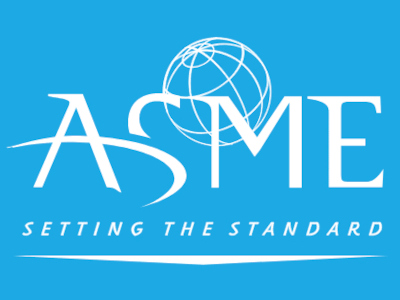ASME technical standards
ASME technical standards are developed and maintained by the American Society of Mechanical Engineers (ASME), widely adopted globally, including across North America, Asia, and other regions, particularly in fields such as pressure equipment, piping, and nuclear power.
Overview of ASME Technical Standards
ASME technical standards are developed and maintained by the American Society of Mechanical Engineers (ASME), a non-profit professional organization founded in 1880 that holds significant international authority and influence. These standards are widely adopted globally (including across North America, Asia, and other regions), particularly in fields such as pressure equipment, piping, and nuclear power.
The following table provides a quick overview of some core information about ASME technical standards:
ASME BPVC, Boiler & Pressure Vessel Code.
ASME B31, Pressure Piping Code.
ASME B16, Pipe Flanges and Fittings Standards.
Official texts must be obtained through ASME or its authorized distributors. Authorized distributor in China: China Petroleum and Petrochemical Equipment Industry Association (CPEIA).
The Essence and Creator of ASME Standards
ASME standards are a series of codes and standards for the industrial and manufacturing sectors developed by the ASME organization. They are adopted in over 90 countries and largely define the safety, quality, and reliability requirements for relevant engineering fields.
The American Society of Mechanical Engineers (ASME), the body that develops and maintains these standards, is a non-profit, authoritative professional organization. It is dedicated to advancing the science and technology of mechanical engineering and related fields, encouraging basic research, promoting academic exchange, and conducting standardization activities.
Main Content and Coverage Areas
The ASME standard system is extensive. Its main content can be summarized as follows:
Boiler and Pressure Vessel Code (BPVC): This is one of ASME's most famous and widely applied code series. It provides detailed safety standards and rules for the design, manufacturing, inspection, and certification of boilers and pressure vessels, aiming to ensure the safety and reliability of this equipment.
Pressure Piping Codes (B31 Series, etc.): Provide safety requirements for the design, materials, fabrication, installation, inspection, and testing of various pressure piping systems, such as B31.1 for Power Piping and B31.3 for Process Piping.
Standards for Pipe Flanges and Fittings (B16 Series, etc.): This series of standards specifies requirements for pipe flanges, valves, flanged fittings (e.g., elbows, tees, reducers), gaskets, bolts, etc., including dimensions, ratings, materials, tolerances, and marking to ensure interchangeability and sealing reliability of these components.
Other Important Standards: ASME also develops standards for many other areas, such as:
B36.10M (Welded and Seamless Wrought Steel Pipe)
B36.19M (Stainless Steel Pipe)
As well as material standards (e.g., SA series), nondestructive examination standards, lifting equipment standards, and more.
Standard Update Frequency
ASME standards are updated periodically to incorporate the latest technological developments, industry practices, and safety requirements.
The Boiler and Pressure Vessel Code (BPVC) is updated every two years.
Other ASME technical standards (such as the B16 and B31 series) also have regular revision cycles to ensure their applicability and advancement. The update process considers factors like technological progress, feedback from operational experience (including incidents), and changing industry needs.
Please note: The specific clauses and editions of ASME standards are constantly updated and revised. In practical engineering applications, it is essential to use the latest edition or the project-specified effective edition of the standard and strictly adhere to its requirements to ensure safety and compliance.
How to Access and Use ASME Standards
As ASME standards are copyrighted documents, official, legitimate copies must be purchased through ASME officially or its authorized sales channels.
In mainland China, the China Petroleum and Petrochemical Equipment Industry Association (CPEIA) is the exclusive authorized service provider for ASME codes in China, responsible for the subscription of original ASME codes and the distribution of officially recognized Chinese translations.
When using ASME standards for product design, manufacturing, or certification, it is imperative to ensure that legitimate copies of the standard texts are obtained and used to avoid technical and legal risks arising from erroneous texts.


